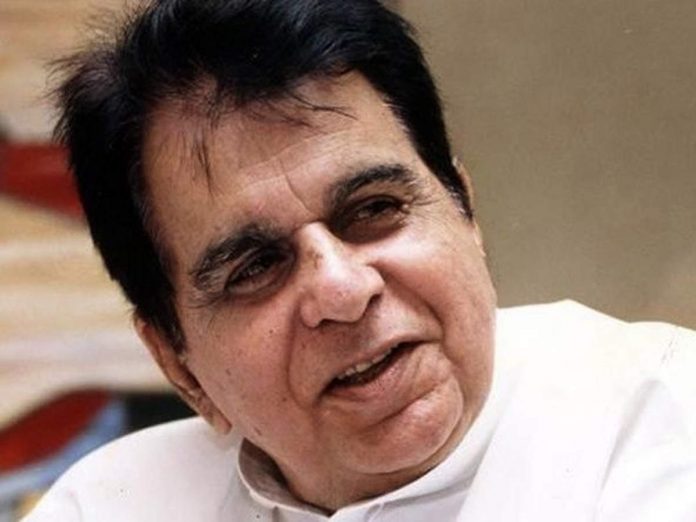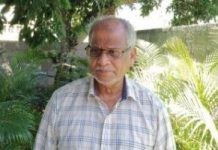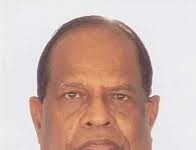by Ibrahim A. Vayid
Legends are not born. They are made of sweat and blood and unparalleled achievements recognized and celebrated by their followers. They are unique champions of their trade who have conquered adversity in all its forms before earning the title and the legacy that comes with it and which cannot be replicated because who they were and what they have accomplished can never be emulated. Legends never die. They touch lives and live in their memories for ever. They become embedded in History, enriching and embellishing it with their illustrious exploits and exceptional characters usually defined by their brilliance, outstanding capabilities and charisma, but always tempered by a certain humility, modesty, nobility and wisdom that set them apart.
If there is anyone who fits so justifiably this definition of Legends, it is no doubt our beloved Dilip Kumar Saab. We use the word “beloved” fully cognizant of the depth of its meaning because it expresses so perfectly what people of all kinds, nationalities, faiths, politics, and generations feel about him for decades through their overt expression of love, adoration, esteem and respect, and now through their tremendous grief and anguish at his loss. He is and has been a national treasure for eons and has inspired generations with his impeccable qualities, talents and a collection of unforgettable films that resulted in him winning the most Filmfare Awards for Best Actor until Shah Rukh Khan, one of his greatest admirers, equalled his record. He was also the recipient of the highest Public Awards granted by both Government of India and Pakistan for his outstanding contribution to the 7th Art, that is the Film Industry.
Dilip Kumar’s legacy speaks volumes about the stature of the man and the consummate artist that he was. He did some 65 films during his lifetime, the bulk of them earning the purse and reputation of what would be described today as blockbusters. Although his acting career started in 1944 with Jwar Bhata, it was not until 1948 that he came out with three back-to-back blockbusters barely remembered by most of his world-wide fans, except for his dedicated cinephiles, namely: Nadiya Ke Par, Shaheed and Mela. These films were precursors of the kind of movies that would make Dilip Kumar famous and earn him eventually the title of “King of Tragedy” as they were all based on tragic stories that would fill your hearts with unfathomable grief and tear your souls apart. In all three films, we got a pure and vibrant glimpse and foretaste of the artistic genius of a new cinematic giant. This was soon confirmed by his incredible romantic and tragic performances in Andaz in 1949, Daag and Devdas in 1955.
Dilip Saab never ceased to amaze and delight us with his unique acting style, his flawless diction, his clever and imaginative wit, and his imposing, but yet humble, personality. He brough a fresh breath of innovation to the Indian cinematic world with his new approach to acting and his feelings that Indian cinema had remained static for far too long, and needed therefor to be reinvigorated, to be given a new leaf on life, to change directions and reinvent itself. He was far beyond his time when it comes to artistic capabilities, acting possibilities and accomplishments. He had a vision of the art of acting and of what the Indian Film Industry could achieve with proper guidance, faith and determination, and he strived very hard to convince some of the industry Moghuls to implement at least some of his ideas, which proved to be not only a tremendous boon to the cinematic world, but also to give it the boost that it sorely needed at the time to bring the 7th Art into innovative stream of the 20th century.
Dilip Kumar was a living Legend before becoming a Legend in his own rights. He had performed and done everything expected of a true Legend while still breathing and living. His legacy attests to this when the whole world mourns his passing with such genuine grief, distress and profound desolation while celebrating at the same time the unmatched heritage that he left behind for us to still enjoy for as long as we live and remember him for who he was: a simple, humble Human Being who loved life.




![[Message de l’Eid-Ul-Fitr 2024] Atteindre la piété… Et après ???](https://sundaytimesmauritius.com/wp-content/uploads/2023/10/Bashir-new-218x150.jpg)


![[Democracy Watch Mauritius] The Rwanda genocide started 7th April 1994, 30 years ago. Has humankind learnt the lesson? Consider Israel’s action in GAZA today!](https://sundaytimesmauritius.com/wp-content/uploads/2024/03/democracy_0-218x150.jpg)







